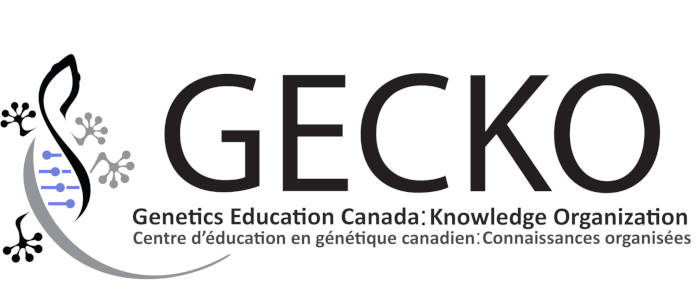 Type 2 Diabetes
Type 2 Diabetes
|
Bottomline: Several gene variants have been associated with an increased susceptibility to type 2 diabetes. Variants within the TCF7L2 gene show some of the largest effects. It is likely that additional gene variants for susceptibility to diabetes will be discovered. Currently, genetic testing for type 2 diabetes susceptibility is not clinically available in Canada. Furthermore, it is not clear whether such test results would provide health benefits for patients with or without type 2 diabetes. In contrast, it is important to recognize rare monogenic forms of diabetes such as MODY (maturity-onset diabetes of the young) as genetic testing is clinically available and the results can influence treatment and prognosis. |
Updated April 2025
What is type 2 diabetes?
Type 2 diabetes is also known as adult-onset diabetes or non-insulin dependent diabetes mellitus (NIDDM). It is characterized by hyperglycemia. It can be caused by defective insulin secretion, defective responsiveness to insulin or increased glucose output by the liver. Approximately 90% of individuals with a diagnosis of diabetes have the type 2 form1. The worldwide prevalence of type 2 diabetes has been rapidly rising in the past three decades.1,2 The age of onset is usually over 40. It is controlled by diet, exercise and, often, oral hypoglycemic drugs or insulin. Risk factors include obesity, age and family history. Uncontrolled/undetected disease can lead to blindness, heart and kidney disease, reduced blood supply to limbs, nerve damage, or stroke. There is evidence of a genetic component to the risk of type 2 diabetes, including a sibling risk ratio of about 2-4 fold2.
There are several gene variants associated with an increased susceptibility to type 2 diabetes2,3. Each gene variant contributes a modest effect2. Variants within the TCF7L2 gene show some of the largest effects compared to other susceptibility gene variants, which itself has only a modest effect (odds ratio ~1.4)3.
Red Flags to consider genetic testing or genetic consultation4,5
Most of the time, a diagnosis or family history of type 2 diabetes is not a strong indication for a referral for genetic counselling.
Attention should be paid to individuals where there:
- Are atypical features of diabetes based on age <35 (with age <25 being more suggestive)
- Are negative antibodies
- Is the presence of neonatal hypoglycemia
- Are multiple family members with diabetes not characteristic of type 1 or type 2 diabetes
- The presence of other medical conditions that, in conjunction with the diabetes, suggest a genetic syndrome (e.g. lipodystrophy, biochemical iron overload)
These rare forms of diabetes can be caused by a pathogenic/likely pathogenic variant in a single gene (i.e. they are monogenic) and, in these cases, genetic counselling and/or genetic testing may be appropriate and may influence treatment and prognosis.[Broome
What does the genetic test result mean?
Currently standard clinical genetic testing is not available.
Are there harms or limitations of genetic testing?
When such susceptibility testing is available, patients with a low susceptibility risk may have a false sense of reassurance that they will never develop type 2 diabetes. A positive result does not guarantee an eventual diagnosis of type 2 diabetes and might lead to increased anxiety.
Screening and Management
Check out this clinical decision support tool regarding diabetes, family history, risk assessment and management.
References
[1] Ahmad E, et al. Type 2 diabetes. Lancet. 2022 Nov 19;400(10365):1803-1820. doi: 10.1016/S0140-6736(22)01655-5. Epub 2022 Nov 1
[2] Chen, L et al. The worldwide epidemiology of type 2 diabetes mellitus-present and future perspectives. Nat Rev Endocrinol 2012;8:228-236
[3] Florez JC, et al. Genetics of Type 2 Diabetes. In: Cowie CC, Casagrande SS, Menke A, Cissell MA, Eberhardt MS, Meigs JB, Gregg EW, Knowler WC, Barrett-Connor E, Becker DJ, Brancati FL, Boyko EJ, Herman WH, Howard BV, Narayan KMV, Rewers M, Fradkin JE, editors. Diabetes in America. 3rd ed. Bethesda (MD): National Institute of Diabetes and Digestive and Kidney Diseases (US); 2018 Aug. CHAPTER 14
[4] Tosur M, Philipson LH. Precision diabetes: Lessons learned from maturity-onset diabetes of the young (MODY). J Diabetes Investig. 2022 Sep;13(9):1465-1471. doi: 10.1111/jdi.13860. Epub 2022 Jun 16
[5] Broome DT, et al. Approach to the Patient with MODY-Monogenic Diabetes. J Clin Endocrinol Metab. 2021 Jan 1;106(1):237-250
Other type 2 diabetes resources:
The Canadian Diabetes Risk Assessment Questionnaire (CANRISK) is a statistically valid tool. Available at https://www.healthycanadians.gc.ca/en/canrisk CANRISK has not been validated in individuals <40 years of age.
Authors: H Dorman MSc (C)CGC, JC Carroll MD CCFP, S Morrison MS CGC, JE Allanson MD FRCPC and WS Meschino MD FRCPC
Disclaimer:
· GECKO is an independent not-for-profit program that does not accept support from commercial or non-academic entities.
· GECKO aims to aid the practicing non-genetics clinician by providing informed resources regarding genetic/genomic conditions, services and technologies that have been developed in a rigorous and evidence-based manner with periodic updating. The content on the GECKO site is for educational purposes only. No resource should be used as a substitute for clinical judgement. GECKO assumes no responsibility or liability resulting from the use of information contained herein.
· All clinicians using this site are encouraged to consult local genetics clinics, medical geneticists, or specialists for clarification of questions that arise relating to specific patient problems.
· All patients should seek the advice of their own physician or other qualified clinician regarding any medical questions or conditions.
· External links are selected and reviewed at the time a page is published. However, GECKO is not responsible for the content of external websites. The inclusion of a link to an external website from GECKO should not be understood to be an endorsement of that website or the site’s owners (or their products/services).
· We strive to provide accurate, timely, unbiased, and up-to-date information on this site, and make every attempt to ensure the integrity of the site. However, it is possible that the information contained here may contain inaccuracies or errors for which neither GECKO nor its funding agencies assume responsibility.


